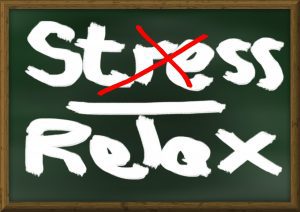
With the pandemic, there has been a radical change in social behavior. Over the last couple of months of adaptation, many of us have been feeling a little overwhelmed.
The stress associated with relationship loss, job relocation, home instability, illness, and changing behaviors is well known. COVID-19 has made all of these a real possibility or a reality. It is testing our ability to adapt to support ourselves and our dependents.
Check-in right now and take a deep breath and let it go. Take comfort that these restrictions will not be in place forever. And, whatever specific challenges you are dealing with at this time will pass. At this moment, are you doing what is needed? In this instant, are you giving yourself space to adjust? Right now are you giving yourself time to let go and grieve?
Stress comes from making lots of changes in a small space of time. This includes changes to our routines and behaviors as well as changes in our expectations and plans.
Stress also comes from disruption to our sense of control over our life outcomes. There has been a lot of change in our perception of what is predictable. Our careers, investments, and even our lifespan all appear to have increased instability.
Changing Routines and Plans
A lot of our daily routines do not work under the restraints implemented to slow down the transmission of COVID-19. Similarly, many plans that we had made to fulfill upcoming requirements will not work under current circumstances and we realize we will likely not be able to follow through. We may also find change in the amount we have to do. Specific demands on our time and energy may have gone way up or way down.
This means we have to let go of some of our routines and plans and make choices about new ones. These changes takes motivation and energy to implement. So, these personal resources are being tested more intensely than usual.
One way to efficiently prioritize is to consider your plans according to the following options (The Four D’s).
- Do it: Follow through in a different way if it is still a top priority.
- Delegate it: Some of our options for delegation have been removed with social distancing, but if outsourcing is still available this is a way to focus your energy on other tasks.
- Defer it: Just change the timing of your plan. Postpone doing it. Check periodically to gauge whether the situation allows you to move forward in the way that you wanted.
- Dump it: The restrictions may have also removed the need for the plan so it can be dropped completely.
Change in Predictability
Another reason for stress is changes to our feelings of control. Events being covered in the news give the impression that things are much worse than they actually are. We are being confronted with our fears for survival on many levels. The pandemic has implications for our own health and the health of our loved ones. It also impacts our financial security through large shifts in the job market. these things influence our mood as well as the information that we apply when making decisions.
These stressors are real. Perhaps we need a bit more sleep or to cut ourselves some slack in following through on things that would normally be a regular part of our routine.
However, that said, the reality is that although some external factors are undergoing transformation, we are substantially the same, with the same skills, and the same ability to plan and respond.
One gift of this pandemic is that it has revealed the extent to which what we do is driven by external demands and constraints. These external factors do not define us. There are things that we can do to adapt our behavior and focus to meet the demands of the situation. In this way, we can take responsibility and reclaim our sense of control.
What do you do to manage the stress of change? What inner strengths have you revealed?
Image by Gerd Altmann from Pixabay